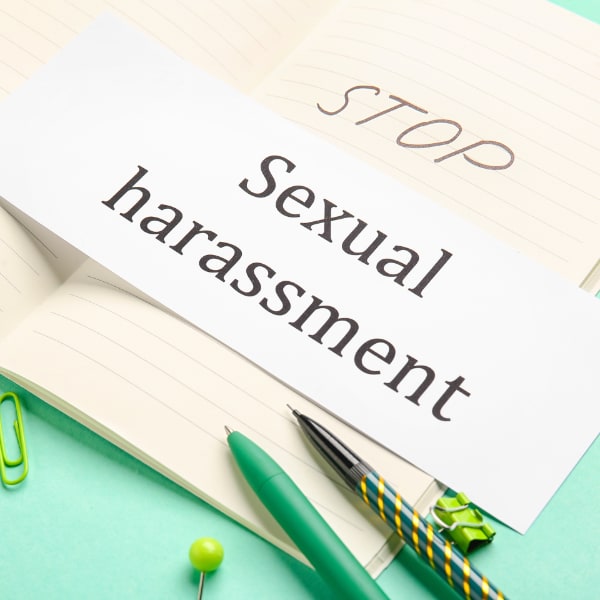
It sounds like simple advice, but calculating the exact dates an employee’s probation period ends can be of crucial importance. For HR purposes, it is crucial to log the day that each employee started their role, or achieved a promotion or movement between internal positions. But why is this?
Tracking key dates, such as when a probationary period starts or ends, is crucial in avoiding costly errors and preventing wrongful termination. HR can face challenges if they aren’t sure of the exact dates of employment when reviewing the end of probation, receiving termination notices, or for positions held for less than two years.
To assess each of these issues that might be faced by any HR department, let’s see how each date should be recorded, for how long, and what could potentially be used against the business if these dates are not properly recognised and met.
Diarising 3-Month Probation Periods
An employee’s probationary period starts from their first day of employment. As an example, an employee starts work on 18 April and has a 3-month probation period, this means that his probation period is 3 calendar months away from this start date.
The Employment Law Act 1996 states statutory notice periods specifically, and in particular, s.210;
(2) In any provision of this Act which refers to a period of continuous employment expressed in months or years—
(a) A month means a calendar month.
The Employment Law Act of 1996 states that each month is considered to be indivisible by UK law. This means that a month isn’t considered to be 28, 29, 30 or 31 days explicitly. Months are instead understood semantically, so if you started on the 18th of April, then your 3-month probation would be over at the end of the working day on the 17th of July in the same year.
The notice period during probation is a week. This increases to anything between 1 week and 12 weeks following the expiry of the probation period, depending on the amount of continuous time served
If the employer in error calculates that probation expires on 18 April then the probation period will already have expired and the employee may, subject to the wording of the probation clause, be entitled to their full 3 months’ notice upon termination.
Understanding and diarising dates is key due to this reason.
How Can Businesses Control Risks With Probation Periods?
A useful safety measure in relation to probation periods is to diarise and review progress regularly throughout the probation period. It is also recommended, as a fail-safe, to insert wording into the employment contract that the probation period shall not be successfully passed until confirmed in writing (and shall continue to run until that happens).
Testimonial
“Superb, realistic, jargon-free, employment law advice. I’d have no hesitation in recommending David Greenhalgh to employees or employers, and indeed have done with other colleagues benefiting from his specialist employment law experience. He is commercially focused and gives practical advice to solve employment issues. He’s professional, responsive and works quickly.”
Sarah Williams
For immediate assistance from David on any employment law issues, please call 0203 603 2177 or Click To Make A Free Online Enquiry.
Calculating Notice Periods
The day that notice is given is ignored so the notice period starts the day after it is given.
How to Calculate a 3-month probation period
3 months’ notice given on 18 April starts on 19 April and expires at the close of business on 18 July (and not close of business on 17 July).
How to Calculate a 6-month probation period
6 months’ notice given on 18 April starts to run on 19 April and expires at the close of business on 18 October (and not at the close of business on 17 October).
In both cases, months like February where there are only 28 days in the month don’t affect our calculator as stipulated in the Employment Law Act of 1996.
It’s also important to remember to observe the Equality Act 2010 during the probation period and ensure that the reasons for a dismissal, even during the probation period, are not discriminatory.
What Happens After The Probation Period?
After a probationary period has ended, you have 3 options to offer or issue to your employee. These options are;
- confirm their employment;
- apply an extension to their probationary period (assuming that you have grounds for this decision), or;
- terminate employment if they haven’t met your expectations.
In each case, it would be prudent to make a scheduled meeting to discuss these options with your employees well in advance of the end of their probationary period. This helps them work towards their intended goals with you and will help alleviate any animosity that may come from an unwanted outcome for them.
If they haven’t met your expectations of them by the end of the probationary period, it shouldn’t come as a surprise to them in their meeting.
If they are going to be kept on for an additional period of probation, or they are moving out of probation, then their contact shouldn’t need to be changed. It could save you from legal grey areas, however, if you stipulate the possibility of a probation extension in their contracts at the start of their initial probationary period.
Probation Period Termination Notice
If your employee has decided to terminate their own probationary period, they are legally required to give a minimum of 1 week’s notice unless there is a specified notice period in their contract. Employers can set their own notice period for probation periods, as long as it’s in writing.
Unfair Dismissal Before 2 Years of Employment
Sometimes employers seek to terminate employees just before they accrue protection from unfair dismissal by paying in lieu of notice. This is not without risk as claims for discrimination and/or detriment due to whistleblowing could still follow.
How To Calculate Unfair Dismissal Periods
To fully understand when the employee will gain protection from unfair dismissal, employers should add 2 years from the start of employment. Then, they should track back 10 days when the unfair dismissal eligibility will accrue.
Legal Advice From Employment Solicitor David Greenhalgh
The rules above serve as a reminder to employers to closely monitor and diarise key dates accurately, ideally well in advance of expiry.
Employers should always be cautious when considering terminating any employee if they are close to the two-year service mark or if they have raised any complaints or issues around discrimination or whistleblowing.
If you would like advice before terminating any employee or if you would like a review of your employment contract, please speak to David Greenhalgh on 0203 603 2177 or Click To Make A Free Online Enquiry.
Seeking professional advice for employee contracts and probation periods can be the difference between needless legal battles between employers and employees, possibly saving you time and money.
This page/article/blog is for reference purposes only. It does not constitute legal advice and should not be relied upon as such. Specific legal advice about your specific circumstances should always be sought separately before taking or deciding not to take any action.




